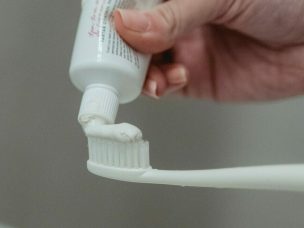Omalizumab appears to be effective in reducing exacerbations and improving lung function, and it may also allow patients to reduce their inhaled corticosteroid dose.
Asthma is a highly prevalent respiratory disease affecting millions of people globally. While asthma is typically considered a childhood-onset illness, onset during adolescence and adulthood is also possible. Early-onset asthma (ages <12 years) is more often associated with atopy, allergic sensitization, and eosinophilic inflammation, while late-onset asthma (ages ≥12 years) is associated with chronic rhinosinusitis, nasal polyposis, obesity, and various inflammatory patterns. Despite the effectiveness and safety of omalizumab in managing moderate to severe persistent allergic asthma in patients aged 6 years and above, there has been no prior investigation into whether patients with early-onset and late-onset asthma respond differently to this anti-IgE antibody.
The study, published in the journal Chronic Respiratory Disease, aimed to evaluate whether patients with early-onset or late-onset asthma respond differently to omalizumab, an anti-IgE antibody approved for treating moderate to severe allergic asthma. The study included 1070 patients; about half were <18 years of age; a third reported an asthma age of onset of 18–40 years; and a tenth reported an age of asthma onset of >40 years.
Omalizumab Reduced Exacerbation Rates
Throughout the 16-week steroid-stable period, patients treated with omalizumab had lower exacerbation rates compared to those treated with a placebo in all age of asthma onset subgroups. The 95% confidence intervals (CIs) overlapped considerably, indicating that the exacerbation rates may be similar across the age of onset groups. However, the 95% CIs for placebo-corrected reductions in exacerbations for the >40 years subgroup crossed zero, indicating that the omalizumab-treated group may not differ significantly from placebo. This could be because of the low patient count.
Changes in Lung Function
During the 16-week steroid-stable period, patients with asthma onset before 18 and between 18-40 years of age showed consistent and increased improvement in forced expiratory volume in 1 second (FEV1) with omalizumab compared to placebo. However, in patients with asthma onset after 40 years, the improvement in FEV1 was not sustained. Despite this, the 95% confidence intervals showed significant overlap with the other groups, suggesting that the response to treatment may still be similar.
Omalizumab Treatment Leads to Greater Reductions in Inhaled Corticosteroid Doses
Patients who received omalizumab showed a more significant reduction in the percentage of inhaled corticosteroid (ICS) dose by week 28 compared to those who received a placebo. The percentage of patients who could reduce their ICS dose by 50% or more or eliminate the use of ICS was also greater for omalizumab- versus placebo-treated patients. ICS dose reductions were greater with omalizumab versus placebo, regardless of the age of asthma onset, as were percentages of patients with ICS doses reduced by at least 50% and 100%.
According to the research findings, individuals with allergic asthma who were treated with omalizumab experienced fewer asthma attacks and were more likely to reduce or stop using ICS compared to those who received a placebo.
Source:
Rogers, L., Holweg, C. T., Pazwash, H., Ko, J., & Louie, S. (2023). Age of asthma onset does not impact the response to omalizumab. Chronic Respiratory Disease, 20, 14799731231159673. https://doi.org/10.1177/14799731231159673









